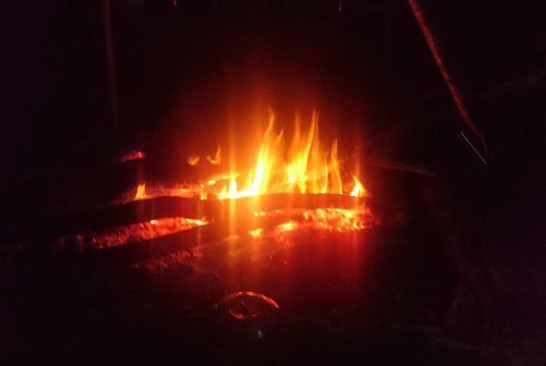Bewilderment: the quality or state of being lost, perplexed, or confused. To be truly in the wilds. A place where there is no map. A place to get lost and become bewildered.
Woods Shock is a more contemporary term for being-wilded. In the woods, in the back-country, in the forests where nobody often goes is a tree-crowded, close-focus, even claustrophobic landscape that can invites confusion and disorientation. It’s not often we get lost: we constantly make mental maps in order to navigate life and the world around us. But sometimes one cannot see the wood for the trees – our life then comes into sharper focus for the quest to find ourselves again. Being lost and finding ourselves is a place bewilderingly rich in metaphor about life and living. Our forest can be the forests of our mind too. But let us put that aside for just one second and focus on the physiology of being lost.
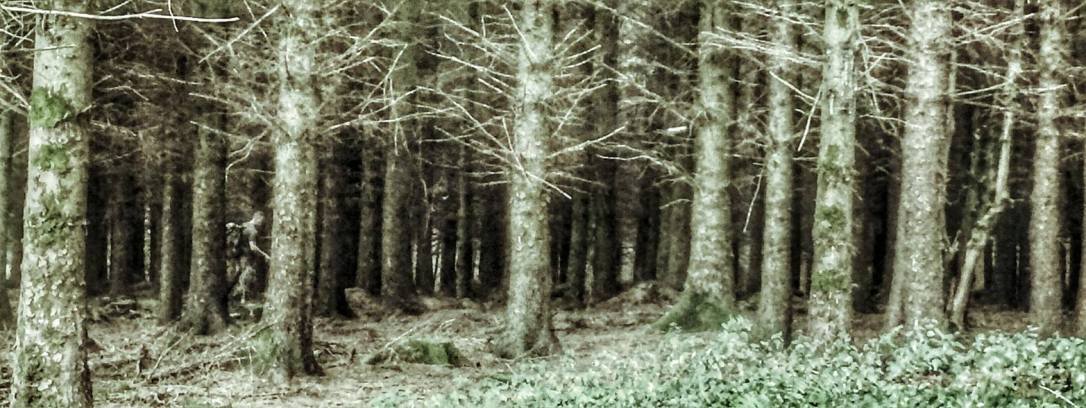
Being lost is a universal human condition. Until a half a century ago there was a widespread belief that some peoples/societies had some sort of innate sense of direction. But when studied more closely it was discovered that they had simply been trained from childhood to pick up very subtle cues from the environment and use them the way anyone else would use landmarks to find a route. Paying very close attention to their environment is key to knowing where they were and where they needed to go. Anything that clouds that attention ‘in the moment’ – either physically, emotionally or mentally can result in ‘lostness’. You simply cannot pay attention to your path and direction (in life or otherwise) if you are not fully ‘present’ to do so.
Being lost is defined as being unable to relate your position in space to known locations. Simply put: its not knowing where you are. However being lost includes a whole range of behavioural consequences as well. Some of these can directly affect our own sense of being and even our very existence – who we are.
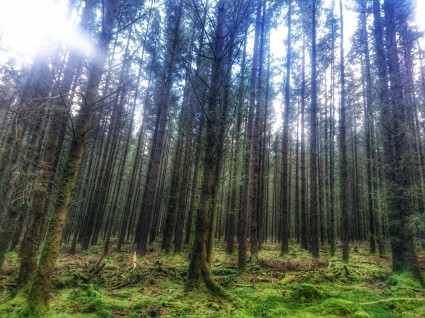
William G Syrotuck, in his book ‘Lost Person Behaviour’ states that: “panic usually implies tearing around or thrashing through the brush, but in its early stages it is less frantic….it all starts when they look about and find that a supposedly familiar location now appears totally strange, or when they start to realise that it seems to be taking longer to reach a particular place than they had expected. There is a tendency to hurry to ‘find the right place.’ ‘Maybe it’s just over that ridge.'”
The brain is complex and this inner universe is still being understood – so it would be unrealistic to be anything but general in this short article. However, recent research in neuroscience has shed some light on how people navigate. The hippocampus is part of the brain that deals with spatial cognition. It is responsible for the creation of spatial reference maps. The hippocampus does not work alone it works in concert with other areas of the brain to sense our motion, position and direction of travel.
However, the hippocampus is not responsible for the seeking of a goal (destination). An important part of goal-setting must be seen in the context of the imperative for survival. The amygdala is responsible for the creation of emotions that prompt fight or flight fear re-actions. These are our survival emotions. The urge to get to a specific place, the drive towards a goal, appears to be emotional too. This makes sense since the amygdala helps trigger action. This is interesting since damage or deterioration (i.e. dementia) to either the amygdala or the hippocampus results in either loss of drive to get to a specific goal or the inability to actually get to a specific place. Both, it could be argued, are different types of ‘being lost’ – one is an emotional ‘lost’ the other is a mechanistic ‘lost’.
Panic that arises when we are lost can trigger an overwhelming desire to get to our goal – this is the normal, primitive survival function of the amygdala. If our hippocampus is mechanically unfit or not informed enough to generate a position or recognise where it is then emotions can twist the perception of where we think we are so as to try and fit the desired reality. This is called, in orienteering, ‘bending the map’. Time and again we see cases of the mind compelling oneself to actually get more lost in an effort to get to an unfindable but familiar place.
An example of ‘bending the map’ is that if one becomes lost, you might, at least initially, deny that you are lost and persuade oneself that a remote lake / bend in river / hill on the horizon in front of you IS the one that you need to traverse to ‘get home’. Often it is not. The subsequent panic and ‘thrashing about in the brush’ just gets you more lost – blurring even our ability to back-track. Our mind, in the absence of an unknown mental map of the area, will take approximate visual clues, flawed assumptions and use guesswork as evidence in order to form another ‘imagined’ map based on desired location and then compel us to a ‘known goal’ which is all but impossible to find from where one currently is. You simply cannot find somewhere from just nowhere.
This could be said to be the same in life – having great changes in our lives can lead to snap-decisions based on high emotions, clouded logic, lazy assumption and panicked guesswork: all in order to try to navigate a crisis or new life scenario. Scarily similar to getting lost in the woods. Emotion is Compulsive. Panic is Emotional. Emotional Compulsion overrides Rational Thought. The primitive mind trumps the cognitive mind at the slightest scent of emergency.
There is a clear logic to the thinking that people who think rationally are less prone to getting lost (and staying lost). High emotions play havoc with observation, rationalisation and processing. It probably goes without saying that people who pay close attention to their surroundings, especially as they move though them, are also less likely to get lost too. Ergo: emotional and therefore also unobservant people are much more likely to get lost and stay lost. I expect these observations are useful metaphors for life in general too: developing strong emotional intelligence will help control the irrational excesses of emotional response. The pay-back is being able to pay better attention to what needs tending to in order to get (life) back on course.
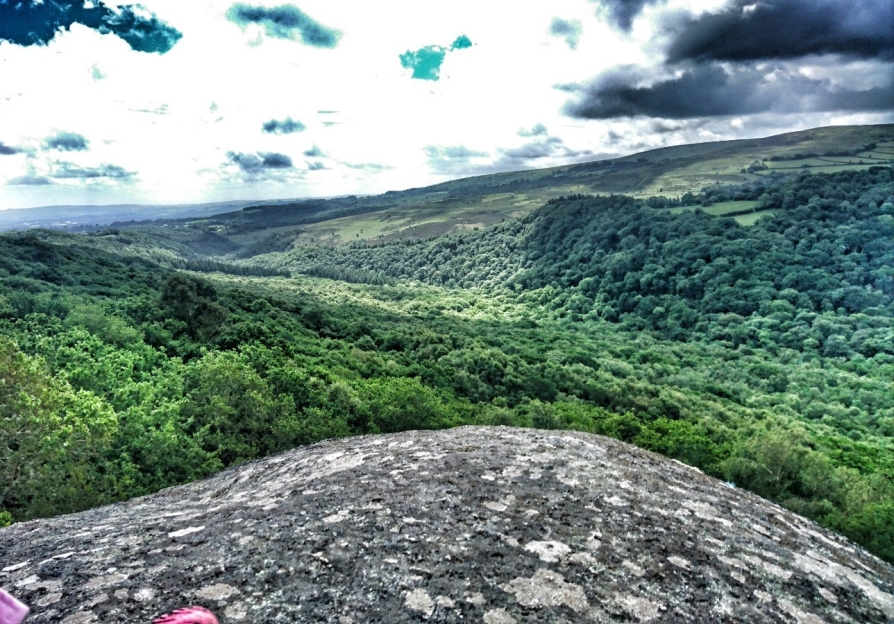
Part of our sense of self is our sense of place or belonging (where we long to be). Without a sense of place – our dislocation to the known-world, to safety, to anything familiar – we are presented with an existential challenge: to adapt to an unfamiliar (i.e. mal-adapted) environment or cease to exist. When we find ourselves ‘being nowhere’ we are at risk of ‘being nothing’.
Leaving existentialist philosophy to one side, one our greatest needs is to ‘be seen’ by others to validate our existence. We are social animals of connection. The fear of being lost in the wilderness ‘never to be SEEN again’ or to ‘die alone’ are some of our greatest innate fears. Being lost means we therefore lose part of our ‘wholeness’. We are simply less, alone, and do not feel complete. And from this point it seems logical that the longer we are lost the more we will start to lose our sense of self or being. In parallel with this we start to lose the ability to psychologically maintain our thinking too. Being lost is now a slippery slope of diminishing resilience. Isolation does that to you.
This paradoxical need to maintain a strong sense of self (as a distinct life-form) whilst mapping, adapting and becoming ‘one’ with an environment is unbelievably important. This could be seen as the essence of being.
Logically one of our most basic needs in order to survive is safety – a safe environment free from harm. Therefore we need to be able to ‘map’ ourselves to our environment. Our imperative as a living organism is to ensure that we are in harmony with it rather than in conflict with it. If we are in conflict with our environment – then eventually we will succumb. So, being lost or unmapped within our environment causes a survival feedback loop that compels us to try and become ‘unlost’. This is a natural response. But, as previously mentioned, the panic created by being locationally challenged can compel us to become more lost because we have no mental map to work from to find ourselves but are still driven by thoughts or desire of what we want life to be (over that ridge). At times like this it is good to heed that age-old advice: if you realise you maybe lost – don’t panic, don’t move. At least not for the MOMENT.
There is a relatively modern term called ‘Woods Shock’. Woods Shock is a term for the fear associated with the complete loss of spatial recognition. Woods are good at that. The panic that ensues can erode the rational self to the point that destructive synergies appear as you start to be careless and lack self-care: exhaustion, dehydration, hypothermia, anxiety, hunger and injury. If one can only stop panic and its subsequent confusion then the chance of not dying in the wild is greatly reduced.
In lost-survival or woods shock situations there are many examples of people ‘just giving up on the will to live’. By the time they have exhausted themselves physically, mentally and emotionally through denial, panic, anger, realisation, action, resignation the next step is the surrendering of self to the environment – and one path is, unfortunately, death. Although there are many Accident Report entries of people having their cause of death recorded as physical (ie hypothermia) many of these, I’d hazard a guess, would be from giving up on their SELF and consequently their life was re-absorbed by their environment. Once your will to live has given up then The End is probably not too far away.
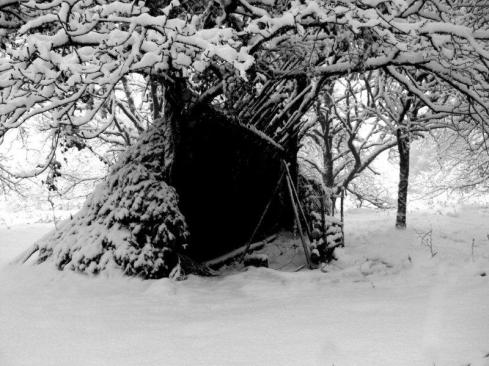
Even at this late stage one can change the outcome. Instead of ‘giving up on life’, accept your situation, stop putting energy into the hope of home as your survival imperative but rather to work to stabilise the balance between Self and Environment by attending to the business of adapting to it. In other words, stop panicking, stop trying to get somewhere: which probably lies beyond the horizon, out of sight, somewhere in the future. Instead, stop and look at what marvellous assets are around you, start to harness them and start to map your new map of the environment you need to exist in and put measures in place to survive as an organism. By doing this you work with, rather than against, the first rule of life: ‘BE HERE NOW’. The only thing that is important at this point is to DO THE NEXT RIGHT THING and continue to focus on that, step by step in the present.
We all get lost. Its a human condition. It does not mean we have to surrender to it. But through being mindfully aware and appreciating how we can work to live in the present can we build a route back to finding ourselves again. It can work in the wilderness, it can work in life too.
